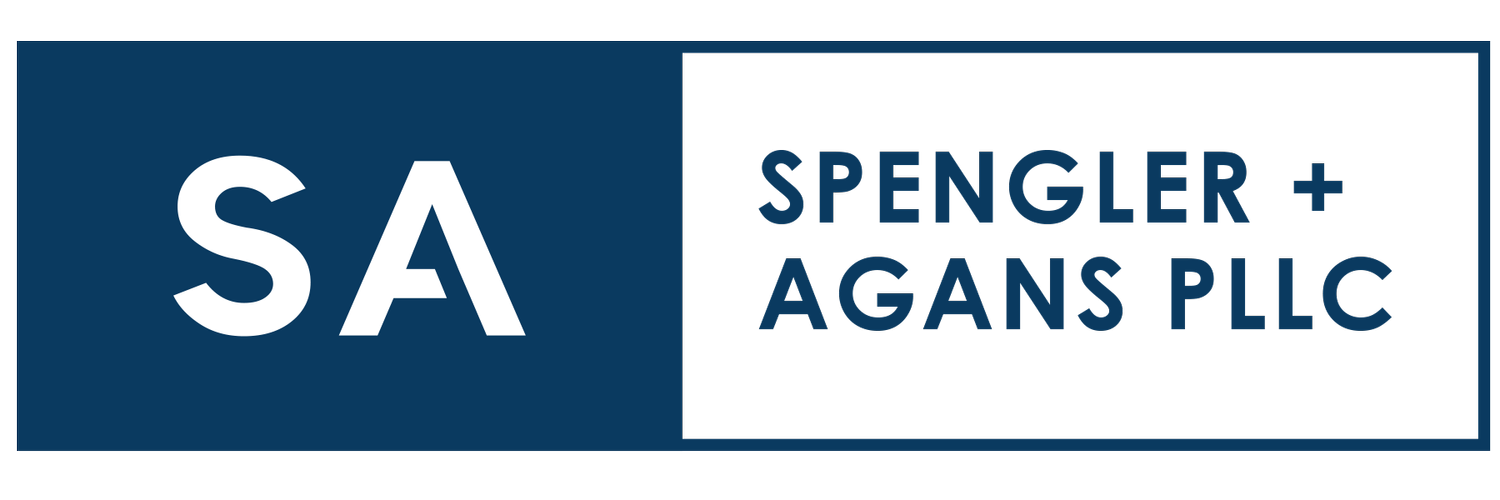Commercial Leases: Key Terms and Important Points to Remember
Commercial leases are often long, complex documents that are likely to make your head spin or eyes gloss over. While reading your commercial lease is unlikely to be your favorite source of entertainment, it is important to understand how to read it, basic definitions, and how the terms interact. Below are few points that have come up recently when reviewing commercial leases in my practice and may be helpful to you if you are exploring renting commercial space.
Tenant Improvement Allowance (also called TI Allowance)
This is the amount, listed in $$/sf (e.g., $30/sf) that the landlord will reimburse you for improvements you make to the commercial space. It’s particularly common for newly built or re-developed commercial spaces. The amount of TI you negotiate tends to be intertwined with rent – so a higher TI allowance usually means higher rent because the landlord needs to recoup the money they give you up-front to build out the space. For people leasing commercial space for the first time, it’s particularly important to remember that the landlord does NOT give you the TI money to do with as you wish – rather, you have to front pay to the contractors initially, and then the landlord reimburses you once the work is completed according to architectural plans. You’ll also have to provide proof that all contractors and subcontractors have been paid for the upfit work, along with any other requirements the landlord has before they cut you the reimbursement check(s).
Radius restriction
This is essentially a special version of a non-compete, where you agree not to open up another location (or other competing business) within a specified number of miles from the leased premises. The idea here is that the landlord doesn’t want you to open another location that is too close to their leased space because they want to make sure another location doesn’t cannibalize sales from the space out of which you pay the landlord rent. It’s important to think about your growth plans for the business when negotiating this point so that additional locations are likely to be outside the specified radius.
Total Cost
This isn’t a term in the lease, but it’s a good way to look at what your ongoing overhead expenses will be for the term of the lease. Most commercial leases are of a type called a Triple Net Lease, meaning to calculate the total cost of the space you need to factor in the base rent, common area expenses (e.g., maintaining the parking lot, trash, snow/ice removal), utilities, expected maintenance costs for your space, and your proportional share of taxes and insurance (based on your space’s square footage divided by the total leaseable square footage of the building or shopping center). All of these may be broken out by the landlord as separate costs, but it’s important to actually add all of the costs up to get your total monthly spend on the space.
Letter of Intent (also called LOI)
A final point on negotiations – the LOI is where the big negotiations happen. Once you’ve signed a Letter of Intent (LOI), it’s difficult to get a landlord to negotiate on any of those points – AT ALL. Here’s a scenario that has come up many times: a client and/or their broker negotiate and agree on the LOI with landlord, including the tenant signing the LOI. Then the client comes to me (only after signing the LOI), to review the full lease. Of course, I also review the LOI to make sure the language in the full lease is consistent with what was agreed to in the LOI. But I almost always find an issue with the LOI – whether it be unnecessarily ambiguous language around the permitted use for the space, or the lack of exclusivity. While the LOI is non-binding, the landlord views the LOI as the time to negotiate all of the high-level or big-ticket deal points. So once you’ve signed the LOI, there’s very little an attorney (or you) can do to get the landlord to walk back on what was agreed to in the LOI. It’s a source of major frustration for clients.
Steps to take before signing a commercial lease
Commercial leases are important documents for every startup and business. Learn more about personal guarantees, default provisions, acceleration clauses, duties to mitigate, and lease costs in this prior blog post. Every commercial lease must be read, researched, and analyzed to prevent businesses from bearing unfair costs. Contact our attorneys to review your commercial lease or other business agreements before signing. Spengler Agans Bradley offers a flat-rate legal checkup for startups and business needing a broad, overall legal review of their business and business practices.
To contact us, or to sign up for our newsletter, please visit our Contact page or reach out to the relevant attorney directly through their bio page. In addition, you can find primary contacts for each practice area by visiting our Areas of Practice page.

